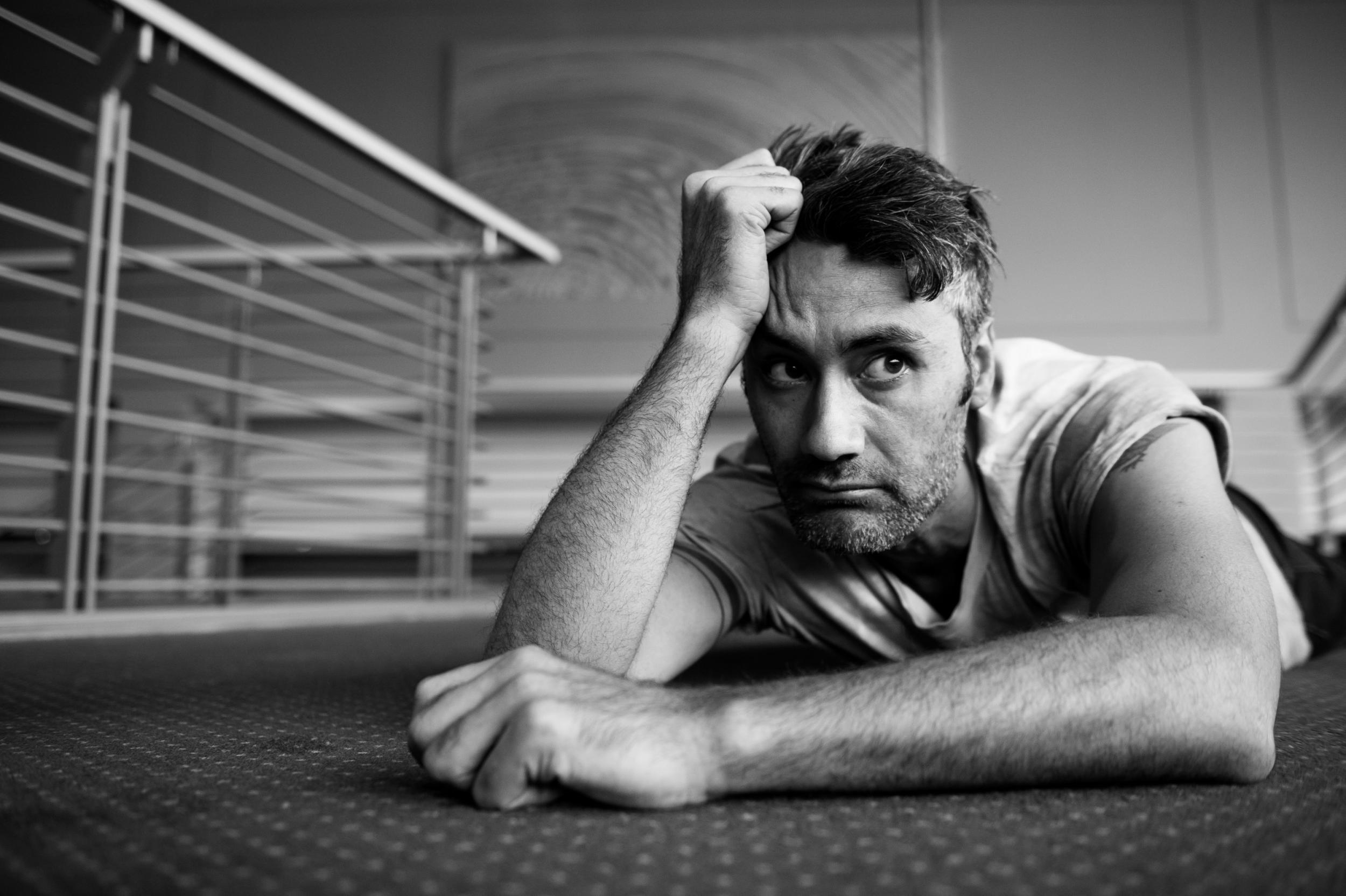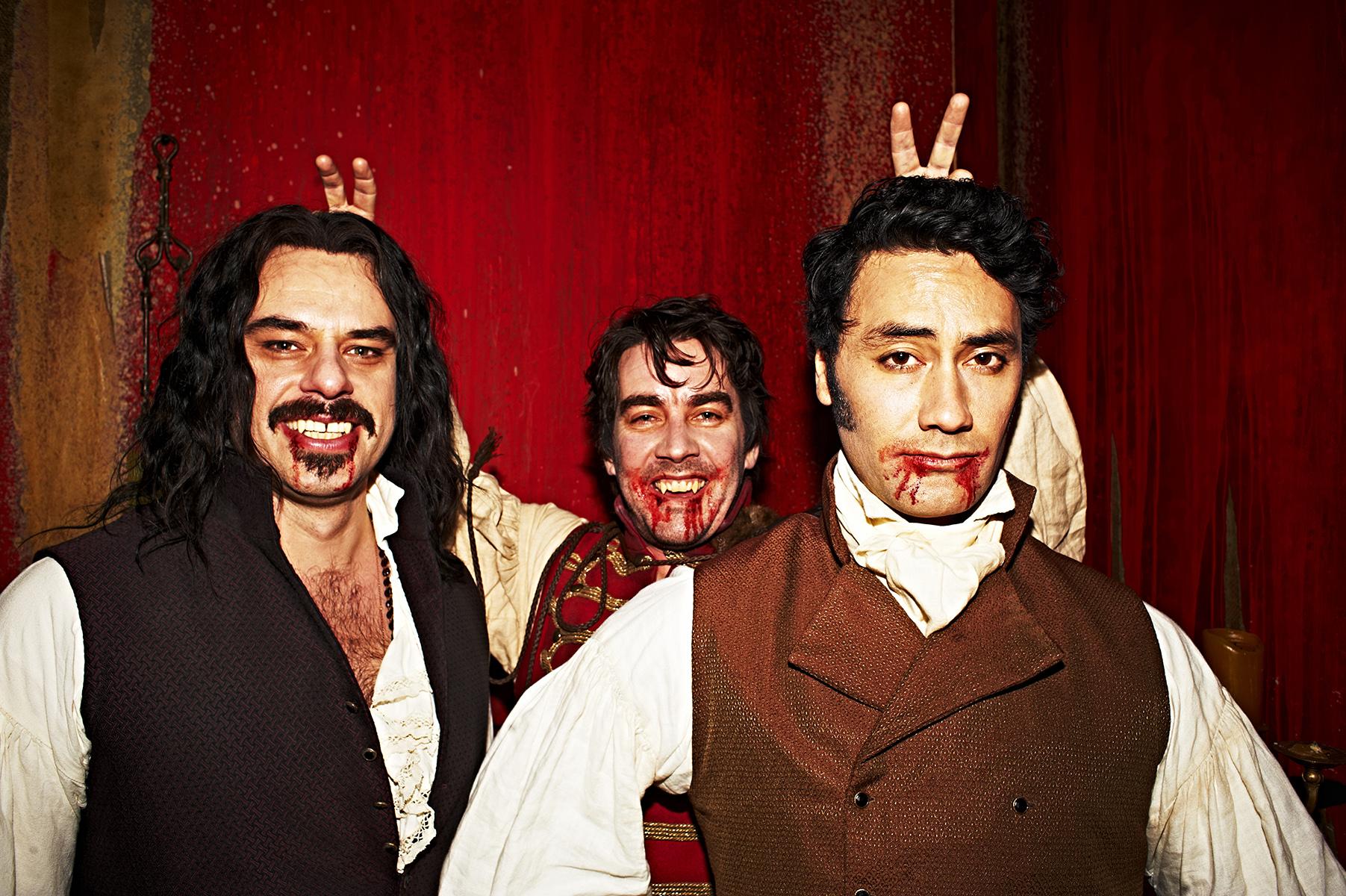Taika Waititi interview: On Hunt for the Wilderpeople and the creative journey
Thor: Ragnarok's director on his creatively diverse background, balancing comedy with tragedy, and the New Zealand landscape

Your support helps us to tell the story
From reproductive rights to climate change to Big Tech, The Independent is on the ground when the story is developing. Whether it's investigating the financials of Elon Musk's pro-Trump PAC or producing our latest documentary, 'The A Word', which shines a light on the American women fighting for reproductive rights, we know how important it is to parse out the facts from the messaging.
At such a critical moment in US history, we need reporters on the ground. Your donation allows us to keep sending journalists to speak to both sides of the story.
The Independent is trusted by Americans across the entire political spectrum. And unlike many other quality news outlets, we choose not to lock Americans out of our reporting and analysis with paywalls. We believe quality journalism should be available to everyone, paid for by those who can afford it.
Your support makes all the difference.“It was never really my plan to become a filmmaker,” Taika Waititi remarks over the phone. There's a kind of blissful irony to that statement when it's uttered by someone speaking to me from the set of one of Hollywood's biggest productions, Thor: Ragnarok. If this is what comes from veering off envisioned paths, then why haven't we all eloped with our wildest fantasies of becoming adventurer geologists and competitive bee-keepers?
Probably, because the vast majority of us lack the happy-go-lucky charm of New Zealand's favourite writer/director; a rapidly rising star on the international scene whose disarming, self-effacing voice has remained unbroken under the weight of cinema's intrinsic grandeur. As with his latest film, Hunt for the Wilderpeople, and its misfit pair of adventurers (newcomer Julian Dennison and Sam Neill) out amongst the New Zealand bush, Waititi and his work offer nothing but effusive humanity in an industry perpetually obsessed with illusion and self-mythologising.
The son of a painter, he confesses himself to be somewhat of a creative nomad, drifting from illustration to acting, comedy to painting, music to photography. Filmmaking just happened to be the one thing that stuck. “I just became interested in a medium which involved many mediums and I could oversee lots of those different facets,” he explains. “From music all the way through to acting – which I was already doing – and writing and directing and also the photography of those images.”
“I just wanted to try it out, so I wrote a couple of short films and did those,” he continues. "They did really well and I guess I didn't really have a proper job at the time anyway, so decided to keep going with it. So, I slowly fell in love with it. It was kind of like an arranged marriage.”
Having produced several shorts as part of New Zealand's annual 48-hour film contest, Waititi eventually shot 2005's short Two Cars, One Night, which went on to earn him an Academy Award nomination. An early encounter with Hollywood's pomp, Waititi made his mark in the only way he knew how, pretending to be asleep as the nominations for Best Live Action Short Film were read out.
Indeed, Waititi's sense of humour will always be what fans know him best for, especially when it comes to his work alongside the rest of New Zealand's comedy scene. While studying drama at the Victoria University of Wellington, Waititi helped found the sketch troupe So You're a Man; with two of his cast-mates, Jemaine Clement and Bret McKenzie, going on to create the wildly popular Flight of the Conchords. Waititi himself would later write and direct several episodes of their television series.
Furthermore, when Two Cars, One Night's success spurred Waititi to launch his directorial debut, it was Clement he called upon to star (alongside Loren Horsley) as a loser-in-love in 2007's Eagle vs. Shark. He later further collaborated with Clement on 2013's vampire mockumentary What We Do in the Shadows; a film rapidly acquiring somewhat of a cult standing amongst fans, with Waititi currently working on sequel We're Wolves.

“My friend and I tried to explain the New Zealand-style of comedy as a comedy of the mundane,” Waititi says of his own relationship with humour. “It’s so boring where we come from that you have to kind of find the funniness in boring stuff. That's why we'll often run scenes way too long until things get really not funny, and then they become funny again. I feel like a lot of what we do is based on just observing stuff that most people would find really boring or not even worth exploring for comedy.”
Though Eagle vs. Shark certainly marked a promising debut for the director, it was 2010's follow-up Boy which truly launched him as a major creative force in his home country. Unfortunately, it's yet to land a UK release, though it proved a surprise box office giant in New Zealand; breaking records to become the highest-grossing homegrown film, only to be ironically toppled this year by Waititi's own Hunt for the Wilderpeople.

Watch Apple TV+ free for 7 days
New subscribers only. £8.99/mo. after free trial. Plan auto-renews until cancelled

Watch Apple TV+ free for 7 days
New subscribers only. £8.99/mo. after free trial. Plan auto-renews until cancelled
Boy's tale of a Michael Jackson-obsessed youngster (James Rolleston) re-connecting with the father who abandoned him (Waititi) clearly struck a chord with New Zealand audiences; on a personal note, it's one of my own favourite films, simply for the reason it hinges on a point of emotional honesty that seems to accept humanity on its fullest spectrum. In Boy's mixture of joy, tragedy, and absurdity, I'm forever reminded that our lives can feel both weighted with cosmic meaning and with a lingering sense that – at the end of the day – we're merely ants floating around on a giant space rock.
In fact, that delicate emotional balance tucked within Waititi's work can often be quite hard for audiences to pin down, though it's also what's helped to craft him such a unique voice. He reflects, “It's very hard to describe my films to be people, because most of my films people either find really funny or quite depressing or like a nice mix of both of them. That's what I'm more interested in, is a mix of that stuff.” His work even benefits from multiple viewings: to see what hits you on the surface, and what's a depth only uncovered in a later return. Which joke leaves you crying with laughter in the cinema, and which subtle nod slowly becomes your favourite over time.
Something I've come to appreciate over multiple viewings is how he treats masculinity as a director; undercutting ideas that hyper-masculinity is some attainable ideal – as toxic as it may turn out to be – by suggesting it's all just an idle fantasy pursued in total vain. Hunt for the Wilderpeople's foster kid Ricky Baker, for example, envisions himself a career in drug dealing cut short by a drive-by – or maybe a Scarface-style shootout. In reality, the worst he’s ever capable of is some light defacing of property, and a little loitering.
“My impression from something like Fight Club is it's made by people who have never been in a fight,” Waititi jokes when I bring up the film's treatment of hyper-masculinity. “I come from a country whose idea of masculinity is quite extreme and I've grown up around a lot of that energy, I've been part of that a lot. And it's very draining, it's quite tiring trying to be macho. I'd never considered [that aspect] – but I like poking fun at it, though. Especially men's infatuation with being tough and being cool – that's something that I'm always laughing about.”
“At the end of the day,” he further muses. “The reality is: we’re all losers and we're all uncoordinated. We're the worst of all of the animals on earth and there's something quite endearing about that. We're literally the stupidest of all the animals. I mean, yeah, we invented stuff but we're so out of touch with everything. Physically, about less that 1% of us are actually probably doing what we should be with our bodies. We are the sh*ttest animals on the planet.”
For all this mounting success, though, the term filmmaker is yet to sit comfortably on Waititi's creatively-expansive shoulders. During a TED Talk given on 'The Art of Creativity', around the release of Boy, he states; “At the moment, I'm a filmmaker, that's not my job. My job is to express myself.” It's something he admits to still feeling six years down the line.
“I don't think I know as much about filmmaking as I probably should,” he confesses. “I know what I want to see from a scene, but I still don't know the names of much of the equipment on set; I don't know the names of camera moves, I still get confused with the shape of the angles and things like that. But, then, I also know if I can communicate what I want with people, then that's fine. You don't have to know the names of anything. I'm learning, though. With every job I learn a new piece of the terminology.”
The more I speak to him, the more I really do get the sense filmmaking exists as a journey for Waititi; something that's in constant evolution and exploration. Hunt for the Wilderpeople, for example, sees him finally embrace in full what the New Zealand landscape has long offered prospective filmmakers. Though his work has always snuck in the odd breathtaking vista – including the coastal communities featured in Eagle vs. Shark and Boy – the director admits, “I've spent years trying to avoid that sort of thing because I hated New Zealand films that always exploited the landscape, but then I live in a beautiful place so it's pretty much unavoidable.”
“I think we were really lucky on [Wilderpeople] to be able to show that off,” he enthuses. “We got to shoot in some places that no one else has ever filmed in before. I think it's probably the most fun I've had on a shoot, just in terms of being outside in quite extreme conditions. But it was also really rewarding, in the the sense that I didn't spend a lot of time - definitely not in the last decade - appreciating our country.”
The future brings an even greater adventure for the director, launching himself fully from New Zealand's shores and into the careful mechanics of the Hollywood studio machine. It's natural fans of the director may worry such a distinctive voice could end up muffled amongst Ragnarok's rigorously controlled franchise setting; but all signs are looking positive so far, especially with the release of Waititi's hilarious Team Thor short – which has the director's fingerprints all over its gentle self-mockery. He further promises on the phone, “there will definitely be something [in Ragnarok] that people will recognise from my other stuff."
We can't all be as creatively intrepid in our lives as Taika Waititi, sure; but if the director's wild success so far proves anything, it's that sometimes it pays not to have a plan.
Hunt for the Wilderpeople hits UK cinemas 16 September.
Join our commenting forum
Join thought-provoking conversations, follow other Independent readers and see their replies
Comments